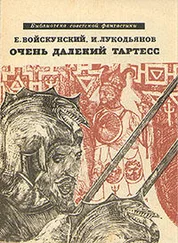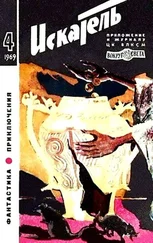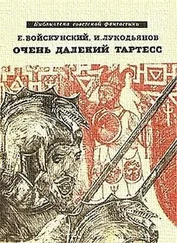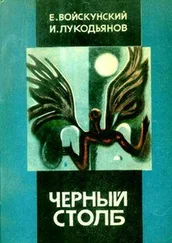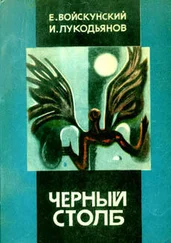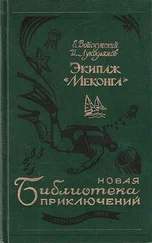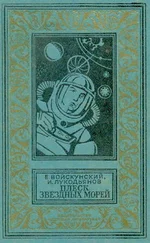Исай Лукодьянов - The Black Pillar
Здесь есть возможность читать онлайн «Исай Лукодьянов - The Black Pillar» весь текст электронной книги совершенно бесплатно (целиком полную версию без сокращений). В некоторых случаях можно слушать аудио, скачать через торрент в формате fb2 и присутствует краткое содержание. Город: Moscow, Год выпуска: 1968, Издательство: MIR Publishers, Жанр: Фантастика и фэнтези, на английском языке. Описание произведения, (предисловие) а так же отзывы посетителей доступны на портале библиотеки ЛибКат.
- Название:The Black Pillar
- Автор:
- Издательство:MIR Publishers
- Жанр:
- Год:1968
- Город:Moscow
- ISBN:нет данных
- Рейтинг книги:3 / 5. Голосов: 1
-
Избранное:Добавить в избранное
- Отзывы:
-
Ваша оценка:
- 60
- 1
- 2
- 3
- 4
- 5
The Black Pillar: краткое содержание, описание и аннотация
Предлагаем к чтению аннотацию, описание, краткое содержание или предисловие (зависит от того, что написал сам автор книги «The Black Pillar»). Если вы не нашли необходимую информацию о книге — напишите в комментариях, мы постараемся отыскать её.
© god54
The Black Pillar — читать онлайн бесплатно полную книгу (весь текст) целиком
Ниже представлен текст книги, разбитый по страницам. Система сохранения места последней прочитанной страницы, позволяет с удобством читать онлайн бесплатно книгу «The Black Pillar», без необходимости каждый раз заново искать на чём Вы остановились. Поставьте закладку, и сможете в любой момент перейти на страницу, на которой закончили чтение.
Интервал:
Закладка:
The whole powerful industry of the world, whose power was based on electromagnetism, came to a standstill. At night the streets of cities were plunged in darkness. Trolley-buses, lathes, lifts in tall buildings, washing-machines, tape-recorders, and cranes-all stood still. Internal combustion engines had no ignition. The radio fell silent. Telephone exchanges were dumb.
Human beings became as isolated from each other as a century before.
Navigation became difficult: the magnetic compass discs.revolved helplessly under the glass, and were unable to indicate the correct course to navigators.
But it was not only human beings who suffered from this sudden calamity. Fish lost their mysterious paths in the electric currents of the ocean streams and spawned at random.
Migratory birds were unable to find their customary routes.
The polar aurora moved toward the Equator and stopped above it, encircling the planet with a shimmering iridescent ring.
Fearful rumours began to be spread about an increasing stream of primary cosmic radiation in the lower layers of the atmosphere, whose protective properties were beginning to alter noticeably. The inhabitants of mountain regions abandoned their homes and came down to the valleys. Terrible stories of the death of the personnel of the Alpine Observatory in the Pamirs passed from mouth to mouth.
A Committee of the Black Pillar, composed of the world's leading scientists, was formed at the United Nations. But while this committee was racking its brains to discover a means of destroying the pillar, the world was being forced to adapt itself to life under the new conditions.
But this world was not one.
In the socialist countries the planned system made it possible to cope with the organized resettlement of the inhabitants of mountain regions, the temporary shutdown of the electrical industry, and the substitution of steam for electric power in industry. Those who had been employed in the electrical industry hurriedly acquired new skills in other industries where, temporarily, at any rate, more manpower was now required.
But the capitalist world was in a ferment. A fierce struggle for government orders blazed up between the monopolies. Coal and oil shares soared; those of electricity companies slumped, and people who believed in the eventual ending of the short circuit bought them up. There was panic on the stock exchanges. The capitalist world was in the grip of gigantic speculations. Prices rose and taxes were increased.
Scare headlines were splashed across the newspapers proclaiming the "last days of mankind", but very often these were a cover for the mercenary interests of the great monopolies. The Transatlantic Transport Company made a deal with a newspaper concern and the rumour was spread across the United States that cosmic rays would reach Ascension Island much later than any other part of the world. Wealthy people made a rush for this tiny island-a hot, nearly waterless, cone sticking out of the depths of the Atlantic Ocean.
Every day to Georgetown, the only populated spot on the island, where some two hundred people, mainly port employees, lived, came rich immigrants in their own ships. With them they brought food, building materials, and water, and they paid an enormous price for every yard of stony soil at the foot of the mountain. Very soon not an inch of space was left available for human habitation. Prices soared to astronomical heights. Murderous fights took place on the island.
The British Government, to which Ascension Island belonged, sent a strong protest to the U.S. Government. Washington rejected the note, indicating in its reply that Ascension Island had been seized by private persons, for whose actions the U.S. Government did not hold itself responsible.
British warships were sent to Ascension and to the neighbouring island of Saint Helena, which had also been invaded by floods of immigrants.
In the squares and open spaces of the cities, unshaven men, who had lost the habit of using non-electric razors, screamed: "The end of the world has come!" "The horsemen of the Apocalypse are on their way!" echoed religious fanatics.
"Look what the scientists have done to us! Death to the scientists!" yelled shopkeepers, ready to start a pogrom.
A whole troop of armed young men arrived in Princeton, New Jersey, on horses, covered with the dust of the South. Deploying over the neat lawns, they launched an attack on the main University building. Students and lecturers met on the way were brutally beaten up and two who put up a fierce resistance were shot. The thugs forced their way into the laboratories and methodically smashed vessels, overturned tables, and destroyed instruments.
"Where did that bandit Einstein work?" they yelled. "Hang the professors!"
Whooping and yelling, they made for the professor's bungalow. A number of students and teachers barricaded themselves in one of the houses and drove the lynchers off with revolver fire. Shots continued to ring out till late at night and the bungalow repulsed attack after attack, until cartridges ran out. Even then these brave men did not give in, but fought the bandits hand to hand, and fell one by one, riddled with bullets. When the police arrived, the bungalow was a flaming torch, shooting out showers of sparks into the dark November sky. The bandits opened fire on the police; reinforcements for both sides arrived, and the Federal Government sent troops to Princeton. For six days veritable war raged there-six bloody days.
Curses were heaped on the heads of the scientists; yet they were the sole source of hope. Only they could cope with the catastrophe.
The first days of stunned surprise passed. The world began feverishly, one way and another, to adapt itself to the new conditions. Transport returned to the steam boiler: steam locomotives drew trains lit by kerosene and acetylene lamps; steamships sailed from the ports. Speaking-tubes and the pneumatic post made their appearance. The number of post offices had to be greatly increased. Postcards replaced the telephone.
The hooves of horses harnessed to lorries and cars clattered over the asphalt of the cities.
Strange hybrids appeared: diesel engines with steam starters.
A fortnight later the names Leonid Moslakov and Yuri Kramer were hailed round the world. Those two final year students at the Bauman Higher Technical Institute in Moscow had invented a device to replace electric ignition in internal combustion engines. Their invention was brilliant yet simplicity itself. Inside the sparking plug they fixed a toothed firing wheel and a long pyrophorous rod with a microfeed mechanism. A trigger on the feed-shaft pulled a spring, the wheel revolved against the rod and struck a spark. In other words, it was an ordinary cigarette lighter- Moslakov and Kramer's lighter-but thanks to it the great mass of motor cars came back to life, and the streets of the cities regained their normal look.
Coal and oil output was increased without delay, and the manufacture of paraffin lamps and candles was organized everywhere with all speed.
As for newspapers, they continued to appear regularly, without interruption; but now they were printed by the light of kerosene and acetylene lamps on rotary presses worked by steam engines. And it was rare that the front pages of the papers did not carry a picture of the black steam-shrouded pillar rising from the ocean.
XXIV
"Academician Morozov: the short circuit will be overcome." ("Izvestia")
"Coal shares reach new peak." ("Wall Street Journal")
''Heavy building programme on Saint Helena. It is reported that the monument to Napoleon has been demolished and is being replaced by a villa for the family of the youngest Rockefeller. London prepares new Note to Washington. The British Third Fleet has been sent to protect Tristan da Cunha." ("Daily Telegraph")
Читать дальшеИнтервал:
Закладка:
Похожие книги на «The Black Pillar»
Представляем Вашему вниманию похожие книги на «The Black Pillar» списком для выбора. Мы отобрали схожую по названию и смыслу литературу в надежде предоставить читателям больше вариантов отыскать новые, интересные, ещё непрочитанные произведения.
Обсуждение, отзывы о книге «The Black Pillar» и просто собственные мнения читателей. Оставьте ваши комментарии, напишите, что Вы думаете о произведении, его смысле или главных героях. Укажите что конкретно понравилось, а что нет, и почему Вы так считаете.

